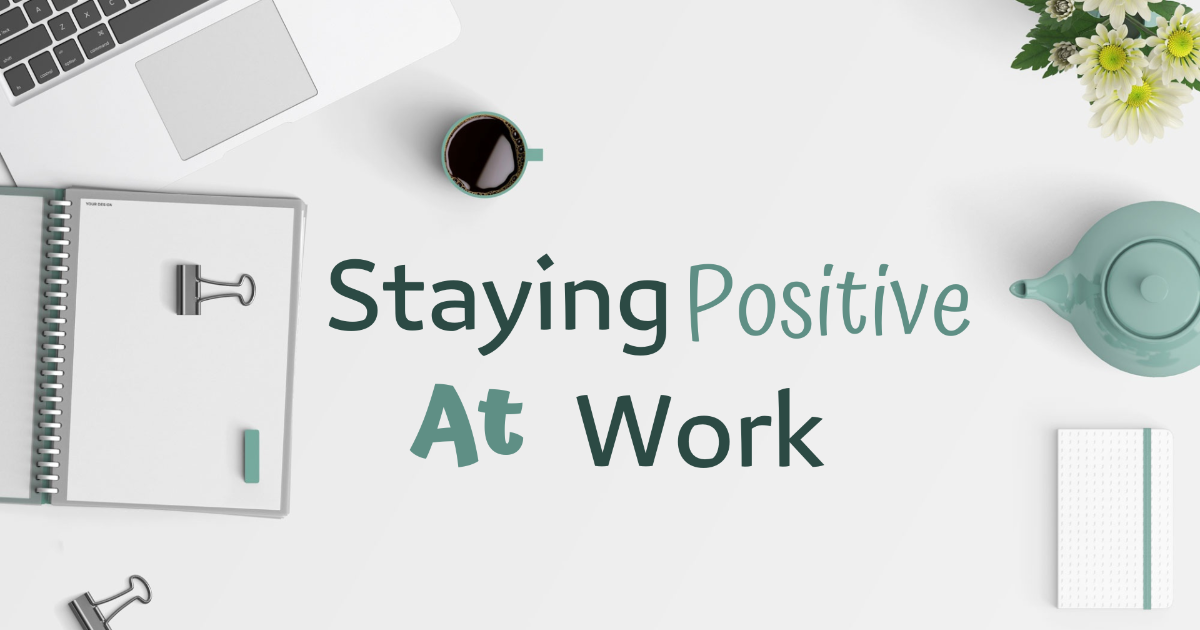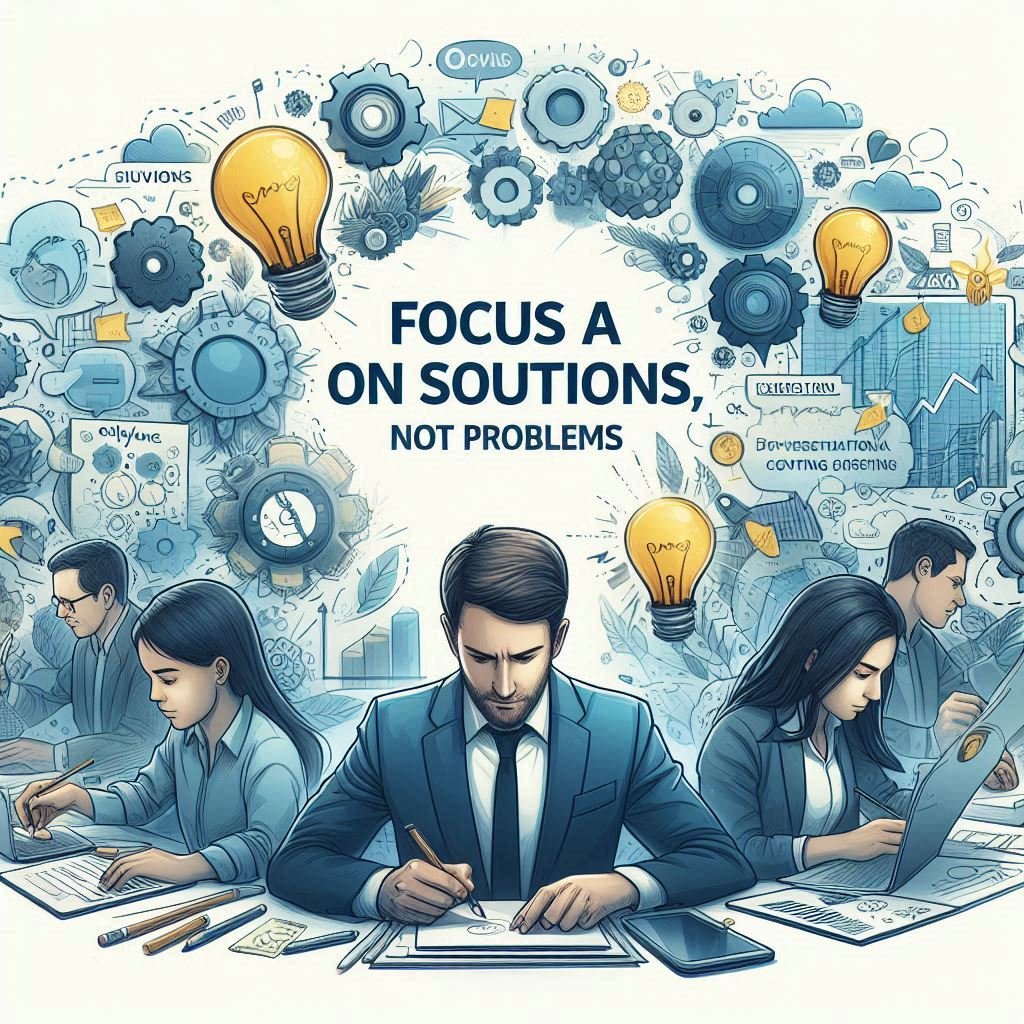Physical Address
304 North Cardinal St.
Dorchester Center, MA 02124
Physical Address
304 North Cardinal St.
Dorchester Center, MA 02124

Maintaining a positive mindset is crucial for achieving long-term success and fulfillment in the modern workplace’s dynamic and often challenging landscape. This comprehensive topic will explore 10 proven strategies for staying positive at work. By cultivating a positive mindset, you can boost your job satisfaction and overall workplace positivity, ultimately driving your career forward.
Drawing from reliable sources and expert insights, this guide will provide practical tips and techniques to enhance your positivity at work. Whether navigating the daily grind, facing unexpected obstacles, or seeking to elevate your professional performance, these strategies will empower you to stay centered, focused, and optimistic, even in the face of workplace challenges.
Maintaining a positive mindset at work is crucial for personal and professional growth. A positive attitude can significantly impact your job performance, colleague relationships, and overall well-being. This section will discuss the importance of a positive mindset and its benefits to the workplace, such as increased productivity, improved problem-solving skills, and enhanced team collaboration.
A positive mindset at work can have a profound impact on your career success. When you approach your tasks and challenges with a positive outlook, you are more likely to find creative solutions, overcome obstacles, and maintain a high level of motivation. This positivity can also contribute to stronger professional relationships, as your colleagues are more likely to be drawn to your optimistic and collaborative spirit.
Fostering a positive mindset in the workplace can yield numerous benefits, both for individual employees and the organization as a whole. A positive mindset can lead to increased employee productivity, as individuals are more focused, energized, and engaged in their work. Additionally, a positive work environment can enhance job satisfaction, improving employee retention and overall morale. Moreover, a positive mindset can boost problem-solving skills, as individuals are more open to exploring innovative solutions and addressing challenges with a solutions-oriented approach.
Certainly! Let’s explore 10 proven strategies for success in the workplace. These strategies can help create a positive and productive work environment, fostering growth and achievement:

Setting clear goals is fundamental to maintaining a positive attitude at work. Goals serve as a compass, providing direction and purpose in your professional journey. They act as a roadmap, guiding your efforts and helping you stay focused on what’s important. When you have well-defined goals, you gain a sense of control over your future, which is empowering and motivating. This sense of direction is especially valuable when you encounter obstacles, as it helps you navigate challenges with resilience and determination.
To ensure that your goals are effective and contribute to a positive work environment, it’s essential to use the SMART criteria:
By setting SMART goals, you create a clear path to success and maintain a positive outlook as you achieve your milestones. Each goal achieved is a step forward, reinforcing your confidence and fostering a positive work atmosphere.

An organized workspace is more than just a tidy area; it’s a catalyst for efficiency and a stress-free mind. When every item has its place, you can navigate your workday with ease, knowing exactly where everything is. This organization extends beyond the physical space—it encompasses your digital environment as well.
A well-ordered workspace can significantly boost your productivity by minimizing the time spent searching for tools or documents, allowing you to allocate more time to meaningful work. Moreover, it creates a serene atmosphere that can enhance your focus and mental clarity.
To cultivate and maintain an organized workspace, consider the following strategies:
By integrating these organizational habits into your routine, you can create a workspace that not only supports your productivity but also contributes to a positive and uplifting work environment. Remember, an organized space reflects an organized mind, and this harmony is essential for success and well-being at work.

Regular breaks are a vital component of a productive workday. They serve as a reset button for your mind, preventing fatigue and maintaining mental agility. Breaks are not just a respite from work; they’re a strategic tool that can boost creativity, problem-solving abilities, and overall job performance. By stepping away from your tasks, even briefly, you give yourself the opportunity to approach challenges with a fresh perspective.
Different types of breaks serve various purposes and offer unique benefits:
Incorporating these breaks into your daily routine can significantly improve your overall well-being. They help you stay energized, focused, and positive throughout the workday. Remember, productivity isn’t about the number of hours you work; it’s about how effectively you use those hours. Regular breaks are the key to sustaining high performance without sacrificing your health or happiness.
Gratitude is more than just saying “thank you”—it’s a mindset that can transform your approach to work and life. Research has consistently shown that practicing gratitude can lead to significant improvements in mental health. It helps shift your focus from what’s missing in your life to the abundance that’s present. This positive outlook can decrease stress and increase feelings of well-being, making challenges more manageable and enhancing your resilience.
Cultivating gratitude in the workplace doesn’t require grand gestures; it can be done through simple, daily practices:
Integrating gratitude into your daily routine is a simple yet profound way to enhance your work environment. It can lead to a more harmonious office, improve collaboration, and elevate your overall happiness. Remember, a grateful heart is a magnet for positive experiences, and by fostering gratitude, you’re setting the stage for success and satisfaction in your career.

Positive relationships in the workplace are the cornerstone of a thriving professional environment. They foster better collaboration, enhance job satisfaction, and contribute to a supportive atmosphere. Social connections at work can provide a network of emotional support, making your workday more enjoyable and less stressful. These relationships can also serve as a source of inspiration and innovation, as diverse ideas and perspectives come together.
Here are some strategies to help you build and maintain positive relationships at work:
By implementing these strategies, you can contribute to a positive work atmosphere where everyone feels valued and connected. Positive relationships are a two-way street; as you invest in others, you’ll find that support and positivity come back to you, enhancing your own work experience. Remember, a positive work environment is a collective effort, and it starts with each individual’s actions and attitudes.
Workplace stress is a prevalent issue that can arise from various factors, including tight deadlines, heavy workloads, or conflicts with colleagues. It’s important to recognize the signs of stress, which can manifest as irritability, fatigue, difficulty concentrating, or physical symptoms like headaches. Acknowledging these signs is the first step toward managing stress effectively.
By implementing these strategies, you can effectively manage stress and maintain a positive outlook at work. Remember, taking care of your mental health is just as important as meeting your professional goals. A positive attitude not only improves your overall health but also contributes to a more harmonious and productive work environment.
Constructive feedback is an indispensable tool that can propel your personal and professional journey. It sheds light on both your strengths and areas for improvement, offering a balanced view that can help you hone your skills and excel in your role.
By actively seeking and utilizing feedback, you can boost your confidence and stay motivated. It’s a process that contributes to a positive and fulfilling work experience, where challenges become opportunities, and growth is a continuous journey. Embrace feedback as a gift that keeps on giving, pushing you towards excellence and success.
Constructive feedback is a valuable tool for personal and professional growth. It provides insights into your strengths and areas for improvement, helping you to develop and excel in your role.
Embracing feedback can boost your confidence and keep you motivated, contributing to a positive work experience.
Regular physical activity is essential for maintaining both physical and mental health. Exercise releases endorphins, which are natural mood boosters, and can help reduce stress and anxiety.
Incorporating exercise into your daily routine can enhance your energy levels and overall well-being, helping you stay positive.
Achieving a healthy work-life balance is crucial for long-term well-being and job satisfaction. It ensures you have time to relax and recharge, reducing the risk of burnout and maintaining your mental health.
By maintaining a work-life balance, you can enjoy a more fulfilling personal life and remain positive and productive at work.

When faced with challenges, a solution-oriented mindset can help you overcome obstacles more effectively. Focusing on solutions rather than dwelling on problems encourages proactive thinking and resilience.
Adopting a solution-oriented approach can help you navigate challenges with confidence and maintain a positive outlook.
In this comprehensive article, we have explored 10 proven strategies to help you stay positive and thrive in your work environment. By cultivating a positive mindset, you can boost your productivity, and job satisfaction, and ultimately achieve greater workplace success and career growth. Remember, staying positive at work is a journey, and with consistent effort and a willingness to adapt, you can create a more fulfilling and rewarding professional experience.
From practicing gratitude and embracing challenges as opportunities to surrounding yourself with positive people and developing resilience, these strategies have the power to transform your outlook and unlock your full potential. By implementing these techniques, you can create a work environment that fosters positivity, collaboration, and a deep sense of purpose.
As you continue on your journey to staying positive at work, remember that it’s not just about achieving short-term goals, but about cultivating a sustainable positive mindset that will serve you well throughout your career. With dedication and a willingness to grow, you can unlock the many benefits of a positive work culture and position yourself for long-term workplace success.
Some of the proven strategies for staying positive at work include cultivating an attitude of gratitude, embracing challenges as opportunities, surrounding yourself with positive people, practicing mindfulness and stress management, setting achievable goals and celebrating wins, maintaining a positive work environment, developing resilience and self-compassion, and more.
To develop a more positive mindset, focus on practicing gratitude exercises, reframing negative situations as opportunities, building a supportive network of positive colleagues, and incorporating mindfulness techniques into your daily routine. Staying focused on your goals and celebrating your achievements can also help foster a positive outlook.
Maintaining a positive attitude at work can lead to numerous benefits, such as increased productivity, improved problem-solving skills, enhanced team collaboration, higher job satisfaction, and better overall well-being. A positive mindset can also contribute to career growth and success.
To deal with negative coworkers or a challenging work environment, focus on maintaining a positive work environment, encouraging open communication, and practicing effective conflict resolution strategies. Limit your exposure to negative influences and surround yourself with positive, supportive colleagues whenever possible.
To build resilience and self-compassion, engage in self-care activities, such as practicing mindfulness, exercising, and taking regular breaks. Acknowledge and celebrate your progress, and be kind to yourself when faced with setbacks. Develop coping strategies to bounce back from challenges and maintain a positive outlook.